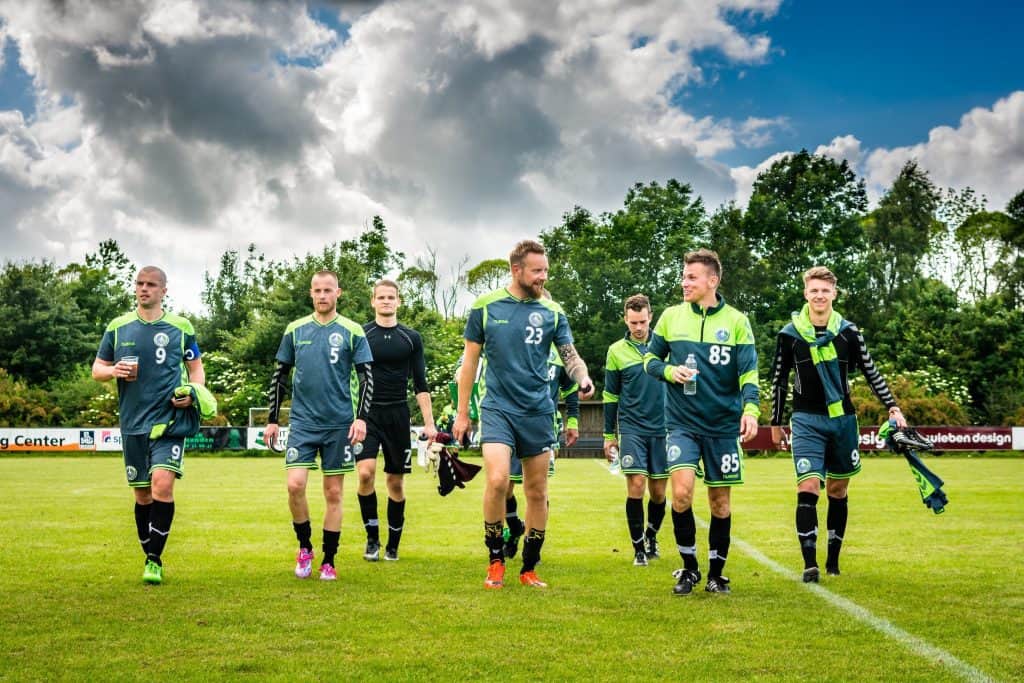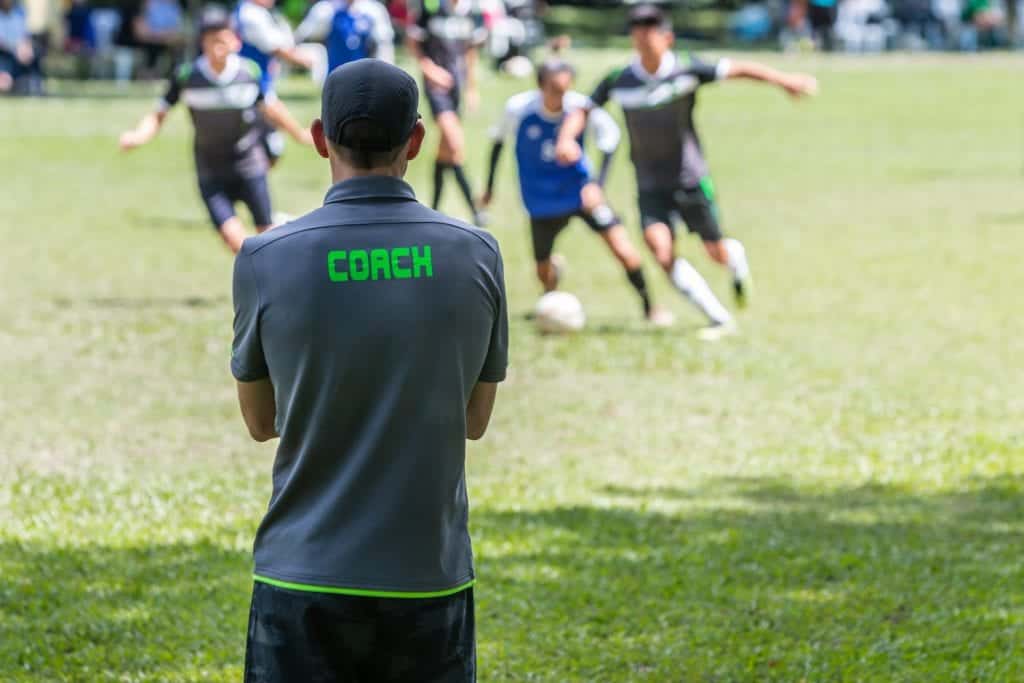If you ask anyone in any industry, recruiting the right person to join your team is a challenging task, that when done right can be extremely rewarding. In sport, and particularly as a head coach, getting the right person in as assistant coach within your program is not only rewarding for both of you, but it results in rapidly effective coaching results, as your recruit adds great value to your team and athletes. On the other hand (and we’ve all experienced this!) recruiting a person who is incompatible with your program, your athletes, or maybe even you, will see your days be longer, frustration arising on both sides, and while results will come, you may not like them.
So, how do you find the right person to join your team in the role of assistant coach?
Nicole M. LaVoi Ph.D., Director of the Tucker Center at the University of Minnesota, joined us as a panelist for one of our recent webinars where the topic of finding excellent assistant coaches came up. Unanimously our panelists, who were all head coaches, agreed that the right assistant coach can help expand a program, take an athlete’s performance to the next level, and absorb some opportunities and responsibilities from the head coach, so that they become competitive candidates for head coaching positions themselves.
Nicole’s contribution provided some research-backed data around ideas that the panel of our coaches were expressing from their own experiences and careers.
She said,
“When you ask a room full of coaches, ‘How did you get into coaching? Raise your hand if someone asked you or said, ‘Hey, have you ever thought about coaching?’ I would say two thirds of the room will raise their hand.”

The entire panel of coaches agreed and reflected that this was also each of their pathways into coaching (the webinar is a great listen, even if we do say so ourselves).
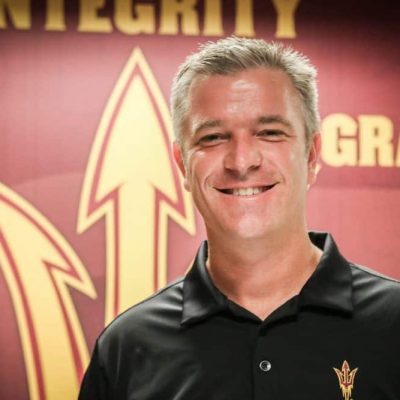
Matt Thurmond, Arizona State University’s Men’s Golf Program Head Coach, has had five of his assistant coaches throughout his 20-year head coaching career, go on to become head coaches themselves (that’s one coach per graduating class!).
Reflecting on his own path into coaching and confirming Nicole’s theory, he shared “I was finishing up my senior year as a student-athlete and my coach came to me and said, ‘Hey, I think you’d be good at coaching. Why don’t you stick around and be my assistant next year?’ I was transitioning a lot of things in my life and said, ‘Hey, you know, that sounds like something reliable that I would love to do.’ And clearly, I really enjoyed it.”
Seven-time Olympic coach in rowing, Tim McLaren, has spent much of his 40-year career recruiting and developing other coaches at all levels, so often finds himself being asked about his process for recruiting assistant coaches. Tim explained that in his experience it’s less about finding people, and more-so about looking for those who present themselves. When reflecting on coaching teams he had assembled, how these coaches presented themselves, and then how they progressed into other roles, he said, “In my mind, it’s really hard to pick when you get an assistant, whether they can be a great head coach, but you take a punt on the qualities they present. I’m trying to look for assistants that really add energy, care for athletes, have an expertise in the area, and have an enthusiasm and dedication to the job.”
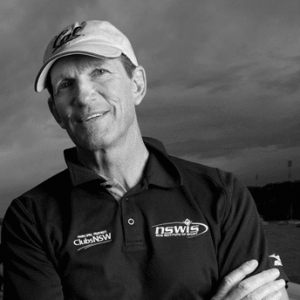
Further Tim says, “Managing behavior and managing people are still some of the main challenges of coaching. The most successful people are adaptable, can treat the kids with courtesy and respect, while at the same time demand that back.”
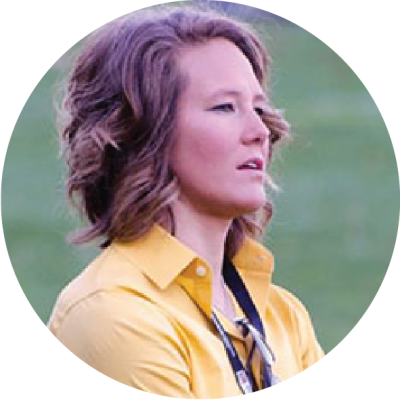
Becky Carlson, Head Coach of Women’s Rugby at Quinnipiac University, explained that since entering the role 11 years ago, she has had three assistant coaches who have gone on to coach at an NCAA level within brand new programs, however within her program there have been a total of 11 alumni. Though, as often is the case, not all of them started out wanting to or knowing they would be coaches.
She says, “I don’t necessarily know that there is a large pool out there. But there are people in my path, like my athletes and the assistants on my staff. Realistically in college coaching, if you’re looking to find someone or you’re looking to mentor someone, and there’s an athlete at your university, they could be the person for you. But usually, they are there to be a nurse, or a lawyer, or a businessperson, and coaching isn’t their major… My people have usually come about because they’re in my space and it starts with the ‘have you ever thought about’ conversation.”
Finding the right fit is easier if we know what style of behavior we are after in our new recruit, and the behavioral patterns of the person that we will be working with. Most styles can find an effective way to work together, provided they know what they are working with and how to be flexible with their own behavior. For example, if the head coach is slower and more deliberate in their style of communication, what does this mean for the assistant? How are they going to communicate and make the most of everything their mentor will have to offer?
Typically, teams have a pretty tight culture and getting the right person in a leadership role, or to train and fulfill a leadership role in the future, is critical. That’s probably one of the first questions to ask yourself before you recruit – ‘what is the culture that you are wanting this person to lead?’
Considering that they will role model and exemplify the key qualities of the team’s culture, making the right choice is critical. The athletes will look to this person for more than technical guidance, whether overt or subliminal, the new recruit’s attitude will have an enormous impact on the people around them. Their work ethic, ability to transfer their knowledge, problem solving, the level of frustration they show, and their patience, will be felt across the entire team as we all contribute to the culture around us in big and little ways, whether we mean to or not. We have written a lot about culture, but here’s a short videoclip to get you up to speed on culture within sporting teams.
Before recruiting your next assistant coach, we recommend taking the time to reflect and ask yourself questions like, how did things turn out with your last assistant? And, do you want to replicate that person’s style? Even though every individual is unique, it is possible to recruit a person exhibiting a similar profile to your previous assistant, or contributing key behavioral attributes that you know you or your athletes need to create both balance and diversity within the coaching team.
For example, a lot of head coaches look to assistants to contribute enthusiasm and energy, characteristics which are most natural and abundant in someone who is high in Influence in their Athlete Assessments DISC Profile. Equally, support comes naturally to a person with a high amount of Steadiness in their profile, while the Dominant style is known to be decisive and direct, and the Conscientious style is renowned for attention to detail and process, which in sport usually means that they are more than up to speed on rules and techniques. Clients who already work with us will be familiar with our suite of DISC Behavioral Profiling tools, and their relevance and effective application to sport, but if you’re looking to familiarize yourself or refresh your DISC knowledge, here’s a useful video.
To summarize, Athlete Assessments’ DISC Profiles will detail how a person communicates, how they relay and absorb information, how they build relationships, tackle tasks, and the pace at which they naturally prefer to work at. Whether they are head coaches themselves, or they are working with teams or individuals on the consulting level, our clients use our DISC Profiles as a foundational tool for development. Having the coaching team complete the CoachDISC and the athletes, the AthleteDISC, allows for an initial profiling of behavior that creates the opportunity for sharing and application. By building on the insights contained within each individual’s report, a common language is established, along with the understanding of what each person uniquely contributes, and how to utilize it for best performance. At Athlete Assessments we use DISC Profiles as a standard procedure during our recruiting process too. The reports help us find the right candidate for our team, as well as in establishing and maintaining optimal working environments for existing and new staff.
Many of the coaches we work with also see the future growth of their sport as a personal responsibility, viewing it as something they can contribute to by developing solid and quality leadership in their assistant coaches, many of whom will later become head coaches themselves. This broader perspective is certainly strong amongst sports like women’s rugby, as Becky shared, which are growing at a rapid rate. But the need to scale good coaches in line with sport’s ongoing demand and to safeguard it moving forward, makes it imperative to recruit well at all levels. Recruiting the right assistant is undoubtedly one of the more difficult tasks a head coach faces, but we hope by sharing the experiences of some successful coaches, and highlighting the critical factors that you need to get the right assistant, your job might be a little more straight forward.
Where to from here?
The balance between behavioral styles, coaching philosophies, and techniques can be tricky, if you are assembling your coaching team, and we can help, just reach out and contact us. Athlete Assessments’ CoachDISC Profile reports contain the insights and details which you can use to recruit assistant coaches for the benefit of your team and them as an individual. We encourage you to look through our extensive library of online resources.
At Athlete Assessments we’re here to provide you with excellence in service and to help you be your best. If there is anything we can do to be of service, don’t hesitate to contact us.
Recommended Articles
To determine what the defining factors are of a successful mentoring program, we explore some of the top initiatives from different corners of the world. While ratios, cohorts, sports, and program structures differ within these formalized mentoring programs, what remains consistent are the considerable benefits reaped by all involved.
Every time an athlete, coach or team strives to better their performance, they analyze themselves in action, identify areas to improve upon and make plans for change...
A coach’s role is critical in the context of our society. What I want to share with you in this article is my philosophy on the role of sport and the significant contribution coaches make. This is particularly important for your sport and every sport.


